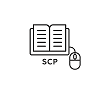
Imagine standing at the crossroads of life’s adventures, ready to embark on a journey that could reshape your future. Studying in Canada offers such an opportunity – a chance gain world-class education, immerse yourself in a vibrant multicultural society, and open doors to diverse career paths. However, before you pack your bags, it’s crucial to navigate the labyrinth of Canada study visa requirements. This comprehensive guide will walk you through the essential steps needed to obtain a Canadian study visa, ensuring you’re well-prepared for your educational odyssey.
How to Get Canadian Study Permit
What is a Study Permit?
A study permit is a document issued by the Canadian government that allows foreign nationals to study at designated learning institutions (DLIs) in Canada. Remember, a study permit is not a visa; it doesn’t let you enter Canada. You may also need a visitor visa or an electronic travel authorization (eTA).
Eligibility Criteria
To be eligible for a study permit, you must:
- Have been accepted by a DLI.
- Prove that you have enough money to pay for:
- Tuition fees
- Living expenses for yourself and any family members who come with you to Canada
- Return transportation for yourself and any family members
- Obey the law, have no criminal record and get a police certificate (if required).
- Be in good health and get a medical exam (if required).
- Prove to an officer that you will leave Canada when your study permit expires.
Essential Documents Required for Canada Study Visa Application
Acceptance Letter from a Designated Learning Institution
One of the first steps to obtaining a study permit is receiving an acceptance letter from a DLI. This letter serves as proof that you’ve been admitted to a recognized educational institution in Canada. Make sure the institution’s information is clearly stated, with the course details and your name accurately mentioned.
Proof of Funds
You must demonstrate that you have sufficient financial resources to support your studies and stay in Canada. This includes:
- Bank statements
- Proof of a Canadian bank account in your name if money has been transferred
- Evidence of a student loan from a bank
- Proof of funding paid from within Canada, if you have a scholarship or are in a Canadian-funded educational program
Valid Passport and Travel Documents
Ensure your passport is valid for the duration of your stay in Canada. You’ll also need to provide recent passport-sized photographs that meet the Canadian visa photo requirements.
Statement of Purpose
A statement of purpose (SOP) or letter of intent explains why you want to study in Canada, your future plans, and why you chose a specific course and institution. This document provides the visa officer with insight into your intentions and career aspirations.
Applying for the Canada Study Permit
Online Application
Applying online is the most common and efficient method. You’ll need to create an account on the Immigration, Refugees and Citizenship Canada (IRCC) website. The online process allows you to upload documents and track the status of your application.
Paper Application
While less common, you can still submit a paper application by mailing or couriering your completed forms and documents to the Visa Application Centre (VAC) in your country of residence.
Biometrics and Interview
Depending on your nationality, you may need to provide biometrics, including fingerprints and a photograph. An interview might also be required, providing an opportunity for the visa officer to ask further questions about your application.
After You Apply for Canada Visa
Processing Time
The processing time for a study permit varies depending on your country of residence and the time of year. It is advisable to apply as early as possible, ideally four to six months before your course begins.
Additional Documents and Medical Examination
The visa office may request additional documents or require you to undergo a medical examination. Ensure timely compliance to avoid delays in your application processing.
Receiving the Decision
If your application is approved, you’ll receive a Port of Entry (POE) Letter of Introduction, which you’ll need to show upon arrival in Canada. You’ll also receive a visa or eTA, depending on your nationality.
Conclusion
Securing a Canadian study permit may seem daunting, but with meticulous preparation and a clear understanding of the requirements, the process becomes much more manageable. Remember to check the latest updates on the IRCC website as policies and procedures may change.
Embark on this exciting journey with confidence, knowing that thorough preparation and understanding will pave the way for a transformational academic and cultural experience in Canada. Bon voyage and good luck with your studies!
“Your education is a dress rehearsal for a life that is yours to lead.” – Nora Ephron
External Resources
- Government of Canada Study Permit Details
- Designated Learning Institutions List
- International Student Scholarships
Feel free to leave any questions or share your experiences with the Canadian study visa application process in the comments below. We’re here to help each other on this academic journey!
Related Articles:
- How to Secure the Best PhD Scholarships in Psychology: Insider Tips Revealed!
- Your Guide to Finding and Securing MBA Scholarships for Black Students in 2024
- 15 Top Universities Offering Full Ride MBA Scholarships in 2024






